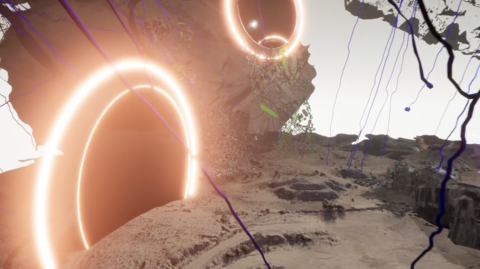Aurora Digitalis is a screening and teaching format dedicated to time-based digital films that create alternative worlds with game engines, among other tools, and renegotiate these worlds in their identities, virtual bodies and socio-economic structures. Through speculative narrative forms, the understanding of game mechanics and avatars, they question the ideological foundations of digital technologies and open up critical perspectives on power structures and future concepts. The screening includes films from international positions as well as HGB alumni.
With films by:
Cao Fei – People’s Limbo in RMB City (2009, 18 min)
A digital record of life, actions, and emotions within the virtual city RMB City in Second Life, exploring the possibilities and limits of technological parallel worlds – where digital infrastructure becomes a stage for artistic, social, and identity experiments.
Harun Farocki – Parallel I (2012, 15 min)
Farocki examines the development of computer graphics and the construction of worlds in early 3D games, leading to a new form of digital reality.
Alice Bucknell – E-Z Kryptobuild (2020, 22 min)
A satirical work about a fictional crypto company selling luxury architecture for the end times, critiquing the delusions of Silicon Valley culture.
Assem Hendawi – Everything Under Heaven (2021, 17 min) Amid digital renderings, sand exposes the fragile architecture of political control in post-revolutionary Cairo.
Adrian Hörr – Mies or A Crippled Symmetry (2024, 9 min)
An introspective, 3D-animated film that explores the dialog between the architect Mies van der Rohe and his iconic Barcelona Pavilion, blurring the line between creator and work.
Aurora Digitalis is an extension of the weekly HGB cinema Aurora. Initiated as part of (Un)Learning Digitalities with Clemens von Wedemeyer (Expanded Cinema class) and Eliza Goldox (Artistic Associate) of the Academy of Fine Arts Leipzig in cooperation with the GfZK.
The project is co-financed by the European Union and co-funded by tax revenues based on the budget approved by the Saxon State Parliament.
